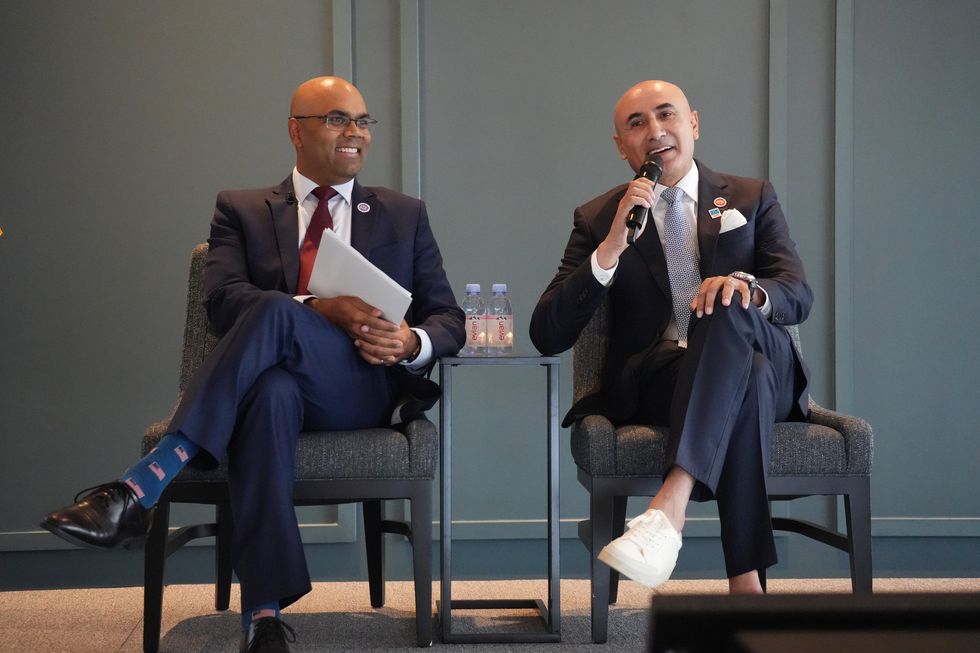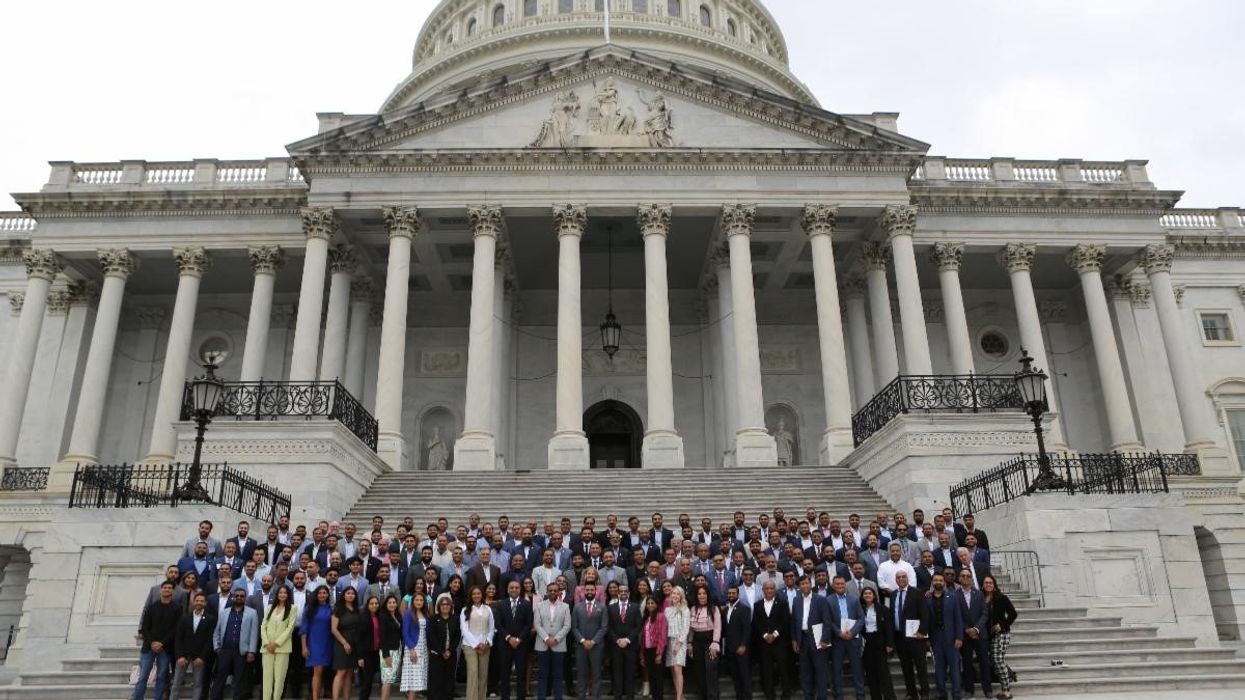WITH JUST OVER one month to go before the presidential election, hotel industry associations are in Washington, D.C., advocating for legislation they say will benefit their members. More than 400 members of AAHOA and the American Hotel & Lodging Association met with members of Congress to discuss issues including workforce expansion, tax relief and transparency in OTA fees.
Around 200 AAHOA members and leaders attended the association’s Fall National Advocacy Conference on Sept. 18 and 19. They held nearly 200 meetings with Senate and House members and their staff to discuss issues.
Also, more than 200 hoteliers and industry leaders from 36 states flew in for AHLA’s annual Hotels on the Hill event on Sept. 24. They held more than 150 meetings.
AHLA emphasizes economic power
AHLA said in a statement that the hotel industry has earned some attention on the federal level. There are nearly 64,000 hotels in the country that together were expected to pay employees a record $123 billion in wages, salaries and other compensation this year while generating nearly $83.4 billion in tax revenue. The industry also supports nearly 1 in 25 American jobs.
“Nothing is more effective at shaping public policy for our industry than when hoteliers and their employees tell their stories directly to legislators,” said Kevin Carey, AHLA’s interim president and CEO. “From tax policies that promote small business growth, to expanding the hotel workforce, to challenging burdensome regulations, there’s no limit to what hoteliers can achieve when we’re united and speak with one voice. Hotels on the Hill gives us a unique opportunity to do just that.”

Some of the proposed legislation that AHLA is supporting include:
- The Closing the Workforce Gap Act would replace the arbitrary annual cap of 66,000 available H-2B temporary visas with a new, needs-based system.
- Extending a pass-through tax deduction, 199A, which is set to expire in 2025 and provides tax relief to franchisees and other hotel small businesses.
- Maintaining the like-kind exchange, section 1031, which allows hoteliers to defer capital gains taxes when they sell one property if they roll the proceeds into the purchase of a larger one. According to AHLA, the exchange helps create new jobs and contributes to economic growth.
- The Hotel Fees Transparency Act and the No Hidden FEES Act would establish a single and transparent standard for mandatory lodging fee display and an even competitive playing field for hotels, short term rentals, online travel agencies, and metasearch sites.
AAHOA meets Ted Cruz
AAHOA’s conference featured events as well as one-on-one meetings.
"As hotel owners, we understand our businesses and the industry better than anyone," said Miraj Patel, AAHOA’s chairman. "It's crucial that the voices of AAHOA members are heard and their realities are taken into account when policymakers are making decisions that affect their livelihoods and businesses."

Republican Sen. Ted Cruz of Texas was the keynote speaker at the conference’s opening Congressional Reception for AAHOA members and legislators.
"It was an honor to have Senator Cruz as the keynote speaker at this year's event," Patel said. "As a fellow Texan, I'm proud to see strong leadership from our state. His insights on the challenges facing our industry and the broader economy are invaluable, and his commitment to advocating for small businesses like ours is something all AAHOA members can appreciate."
AAHOA’s Political Action Committee hosted a special reception on the final night of the conference for members who donated $1,001 or more to its
AAHOA pursued three legislative priorities during the conference.
- Supporting the Loans In Our Neighborhoods (LIONS) Act of 2024, which seeks to increase the maximum loan amount for Small Business Administration 7(a) loans from $5 million to $10 million.
- Promoting the Credit Card Competition Act which aims to introduce more competition in credit card processing, potentially saving businesses billions annually by reducing transaction fees.
- Defending hotel owners from regulations that could impose significant financial burdens, such as the Department of Labor's new Overtime Rule, which AAHOA said has substantially raised the salary threshold for overtime exemptions. To address this, AAHOA is supporting the Congressional Review Act, which seeks to repeal the new rule.
"Engaging directly with lawmakers is how we turn passion into policy," said Laura Lee Blake, AAHOA’s president and CEO. "Representing more than 60 percent of U.S. hotel owners, it is essential that AAHOA leaders collaborate with legislators to drive positive changes that will support the industry in these challenging times. By sharing their experiences and addressing key issues, AAHOA members are building meaningful relationships with the nation's top policymakers. The long-term benefits will be substantial, allowing AAHOA to continue supporting the industry for generations to come."






